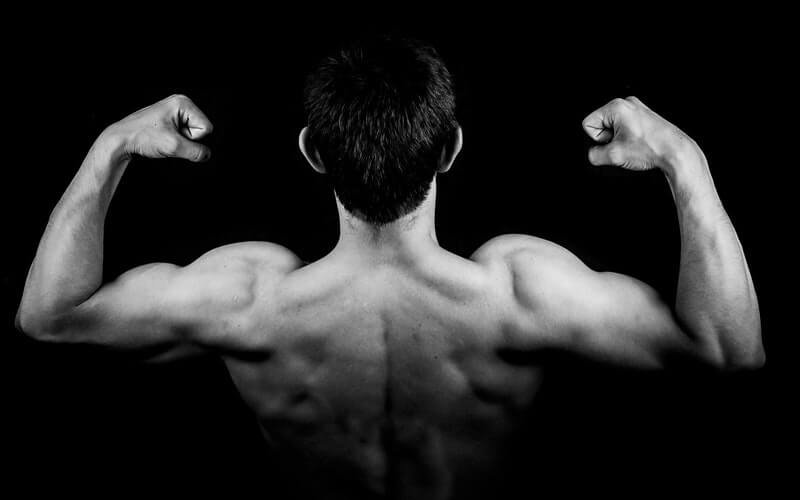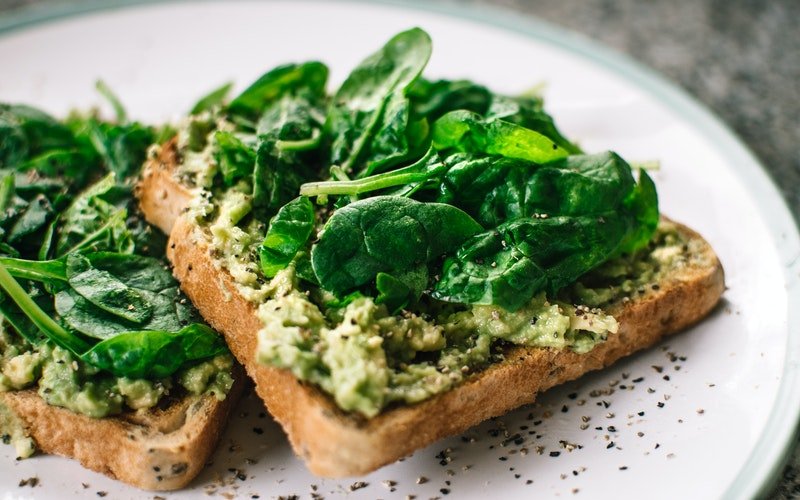Is Vegan Bodybuilding Possible? Short Answer: Yes!

Is Vegan Bodybuilding Possible? Myths or truths?
- “After training, we definitely need animal protein for recovery”
- “Vegan protein is inferior to animal protein”
- “You can’t build muscle volume as a vegan or a vegetarian.”
These are some misconceptions heard by athletes, bodybuilders, people who work out – even by gymnasts or coaches – when arguing against the vegan or vegetarian diet.
But are these statements true? So if someone is vegetarian or vegan they can’t build muscle mass?
Eating foods high in animal protein does promote muscle growth, by changing hormones and making testosterone more active, but it can also accelerate aging and promote the development of serious diseases.
Most meats are saturated with ”bad” fats and for this reason, many athletes who consume a large amount of animal protein may have digestive and other problems.
The three prevailing nutritional myths of bodybuilding
Before you believe that the vegetarian or vegan diet is too rigid or impossible to help you add muscle mass, let’s shoot down the three prevailing nutritional myths of bodybuilding:
MYTH #1: We need a lot of animal protein post-workout to restore
The truth: Athletes need only 10% of their daily calories from protein to support muscle recovery and development. Vegan proteins can easily meet these needs by offering the phytonutrients and fibers that the animal protein does not offer.
Besides, if we consume huge amounts of protein, it doesn’t mean we’re processing it! The amount of protein we take on doesn’t matter as much as the rate of absorption from our bodies.
👉 Related: How to Increase Protein Digestion and Absorption By Over 50%
As animal protein does not contain fiber, those who eat a lot of meat may also need a lot of vegetables to speed up digestion or consume enzyme supplements. An athlete who trains intensively can eat more meat than a non-athlete. But it may not properly digest the protein it takes.
When we consume a lot of animal protein, instead of maximizing protein synthesis, we may simply store excess protein like fat, or slow down the proper function of kidneys and liver.
MYTH #2: Plant protein is inferior to animal protein
The truth: A vegan diet, including fruits and vegetables, plant-based protein such as nuts, legumes, and cereals, can yield similar, if not better results than a diet full of meat and dairy.
Some examples of plant protein sources for athletic performance: green vegetables, legumes, sprouted cereals such as quinoa and millet, growing raw nuts, seeds such as chia.
👉 Related: What Is The Best Supplement For Vegan Bodybuilders
To stimulate nutrient absorption, we eat foods containing good amounts of copper, manganese, and magnesium to properly absorb vitamins C, D, B12, and vegetable iron.
If you choose to eat dairy and/or calcium supplements, take them separately from iron-containing foods, as calcium blocks iron absorption.
MYTH #3: You can’t get a bulky as a vegan or vegetarian
The truth: There are top vegan/vegetarian athletes and bodybuilders! Here are just a few examples:
- Mike Tyson (no need for introductions…), vegan
- Carl Lewis (also doesn’t need recommendations…), vegan
- Bill Pearl, Bodybuilder and 4 Times Mr. Universe, Vegetarian
- Billy Simmonds, Bodybuilder, and Mr. Universe, vegan
- Brendan Brazier, former professional Ironman athlete, vegan
- Dave Scott, 6-time Iron Man world champion, vegetarian.
And yet: you can be Vegan and muscular!
This can also be justified by the minimal sugar, saturated and trans fat content of plant foods, as well as by the excess fiber, phytonutrients, and antioxidants one receives.
Such a clean diet inevitably contributes to weight loss, something that many women certainly like, who desire a more elegant silhouette.
But for men who wish to have a muscular and bulky image, can a vegan diet help them build muscles?
The short answer is Yes.
To make a vegetarian bulky diet, you just need to make sure you are in a positive caloric balance, i.e. you get more calories than you burn metabolically and when you exercise. This can be done by consuming fruits, vegetables, whole grains, legumes and nuts and nut butters.
Macronutrient Sources

Protein
All plant foods contain protein and if you focus on the intake of enough calories every day then you definitely also cover your protein needs to be healthy and active.
Vegan protein sources for bodybuilding can be found in high contents in beans, nuts, tofu, lentils, chickpeas, quinoa, seeds (chia, sesame, flax, etc.) tempeh, and whole grains, as well as all commercial meat and cheese substitutes (fake meat & vegan cheese).
When it comes to taking protein supplements, there are excellent options derived from brown rice, legumes, quinoa, and various vegan blends which can be combined with various fruits, creating a perfect breakfast or post-workout shake.
Carbohydrates
Carbohydrates are the main fuel of your body so that they can carry out physical and laborious activities. Carbohydrates make you feel good too because they tend to increase serotonin levels.
Quality complex carbohydrates can be found in oats, rice, potato, sweet potato, wholemeal bread, pasta, legumes, and fruits.
When you want to add lean mass, prefer more complex carbohydrates that keep your blood glucose levels more stable.
Fats
Fats are essential to the human body for achieving a variety of functions, such as hormone production and vitamin absorption (A, D, E, K), but at the same time, they are the macro-components that are the easiest to convert into energy.
For sources of fat choose foods such as avocado, nuts, and seeds (chia, flax, sesame), rather than commercial substitutes such as vegan mayonnaise and margarine. A good and tasty choice is nut butters, such as peanut butter and almond butter.
Vitamins and minerals
When you get to the point of having a satisfactory level of vitamins and minerals in your body, then you need to make sure that you maintain these levels with quality supplements. It is recommended to consume magnesium which reduces cortisol in the body (the stress hormone that causes muscular atrophy).
👉 Related: 25 Everyday Foods Packed With Magnesium You Probably Didn’t Know
Omega 3
Another source of protein and healthy fats, without eating fish, is Vegan Omega which is recommended on a vegetarian diet. The best choice out there is the Freshfield Vegan Omega 3 DHA Supplement.
Herbal protein supplements
A vegan blend is a pretty good addition in the vegetarian/vegan diet that will help you achieve your bodybuilding goals. Two vegan protein shakes per day – a shake with breakfast and a shake with lunch should be enough.
Recommended vegan protein supplements are Vega Essentials Protein Powder, Nutiva USDA Organic Cold-Pressed Raw Hemp Seed Plant Protein, and Ancient Nutrition Organic Plant Protein.
So, Is Vegan Bodybuilding Possible?
Vegan bodybuilding is considered one of the most difficult sports, due to the difficulty of the overall goal of the sport: increasing muscle mass, reducing body fat. But it really isn’t!
Often, when we seek to gain muscle, we look at muscle cell growth, instead of aiming to get as low fat as possible. However, in bodybuilding, you are looking to do both at the same time.
In short, vegetarians can increase their muscle mass, strength and endurance just like meat eaters.
If you have any friends who are still wondering if Vegan Bodybuilding Possible, point them in this article. Your recommendation would be much appreciated.
